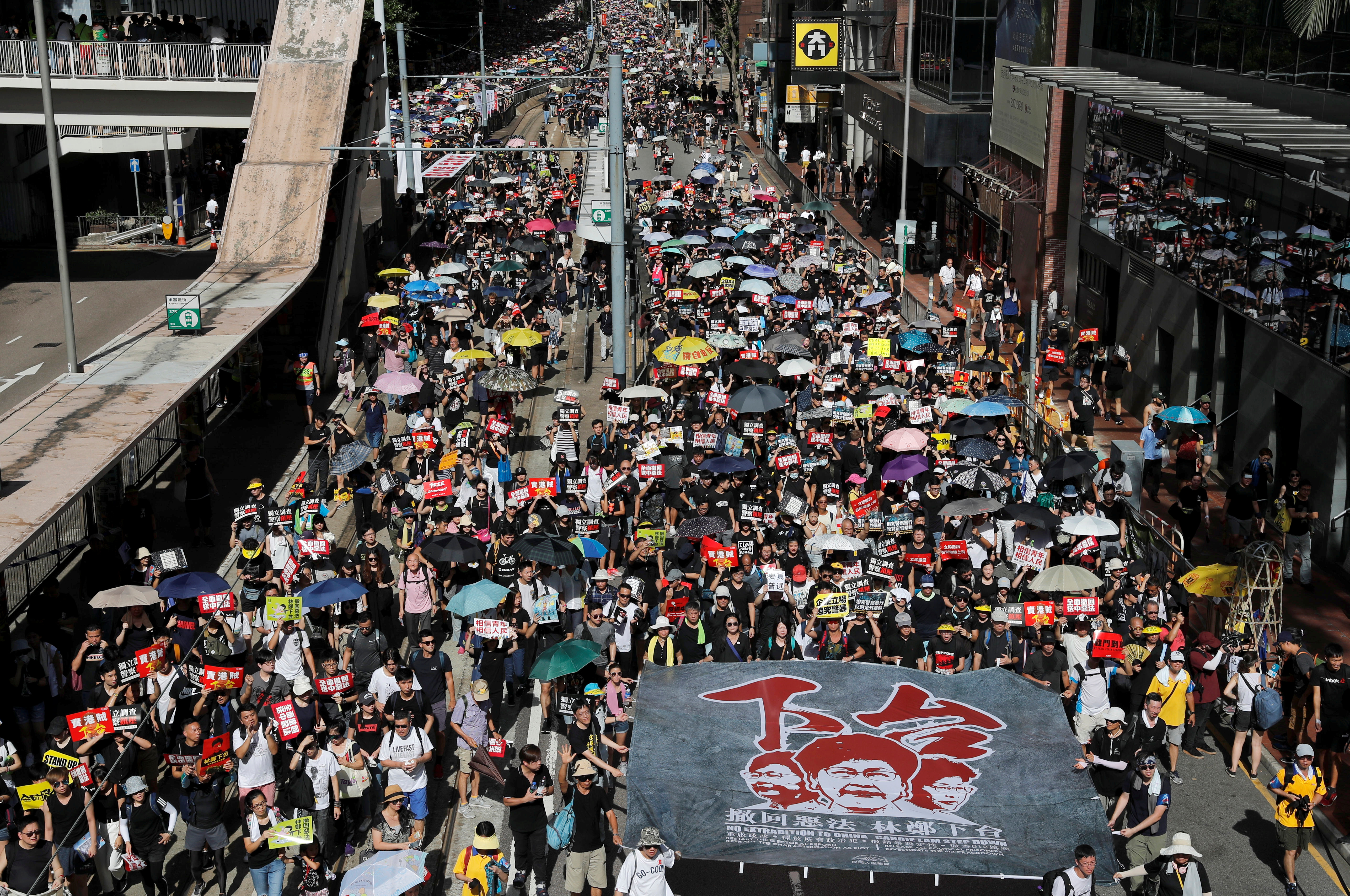Hong Kong protesters battered their way into the city’s legislative complex on Monday night as major demonstrations rocked the city on the 22nd anniversary of its reunification with China.
Thousands of protesters encircled the city’s government complex in the afternoon and by early evening they had made headway in their attempts to break into the legislature, first by making small cracks and then larger holes in the building’s glass panels.
Protesters initially fended off pepper spray from riot police inside with their umbrellas and goggles, but by 9:30 pm local time police were nowhere to be seen as both protesters and media poured into the building.
Once inside, protesters roamed the hallways and defaced walls with spray paint, while others attempted to break security cameras.
The scenes varied dramatically from an otherwise peaceful march held earlier in the day.
While the protests coincided with the anniversary of Hong Kong’s handover they were triggered by a controversial legislative bill that would allow for criminal extradition to China.
The bill has ignited mass protests for most of the month of June, continuing after Hong Kong leader Carrie Lam said previously she would suspend the bill and apologized. The measure is set to expire next year with the legislative session.
On Monday, Lam said at a speech she had learned to be more “responsive to the aspirations, sentiments and opinions of the community.”
“The first and most basic step to take is to change the government’s style of governance to make it more open and accommodating,” Lam said. “We also need to reform the way we listen to public views.”
Lam, however, has failed to withdraw the bill permanently or meet other protest demands including an inquiry into police tactics at a violent demonstration on June 12.
She is now facing her lowest popularity ranking since taking office in 2017, according to a survey by the University of Hong Kong.
Protester Leo Wong said many residents mistrust the government, which has promised to cancel unpopular initiatives in the past only for them to change their mind later.
“I understand that people may be saying suspension is the same as withdrawal… but why the protesters are still angry about this is people were tricked by the government for so many times over so many years,” Wong told VOA.

He and many other protesters also spoke of their fears that Hong Kong was losing its autonomy to China, promised until 2047. Citizens are currently protected by the Basic Law, a set of civil and political rights considered Hong Kong’s mini constitution, but they fear this may be eroded.
“There is an actual deadline of basic law until 2047, but we aren’t sure they will honor that deadline. Even though we are having one country two systems now… They try to erode our freedom and encroach into Hong Kong,” Wong said.
Earlier on Monday, police fired pepper spray and used batons to keep thousands of protesters from charging an early morning flag raising ceremony that marks every anniversary of the city’s handover from the United Kingdom in 1997.
A government spokesperson said that a total of 25 protesters and police had been injured as of 11 am Monday.
Protesters also took down China’s flag and replaced it with a black version of Hong Kong’s flag, which features the white Bauhinia flower in the center.
The flag raising ceremony draws a small number of protesters every year. but Monday’s rally was far greater than expected.
The extradition debate has seen the government unwittingly reignite Hong Kong’s protest movement, and calls for the direct election of its leader, five years after 2014’s so-called Umbrella Movement democracy protests came to an end.
Many protesters have pointed to the government’s failure to respond to popular demands as a sign that the city’s political system is broken.
“Although the bill is the issue I think behind is our fight for democracy of our Hong Kong people,” said protester James Leung.

